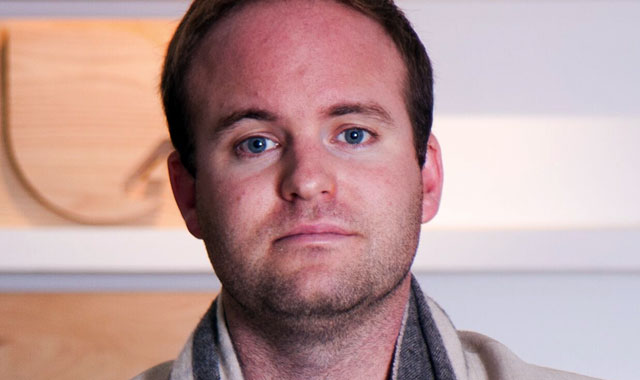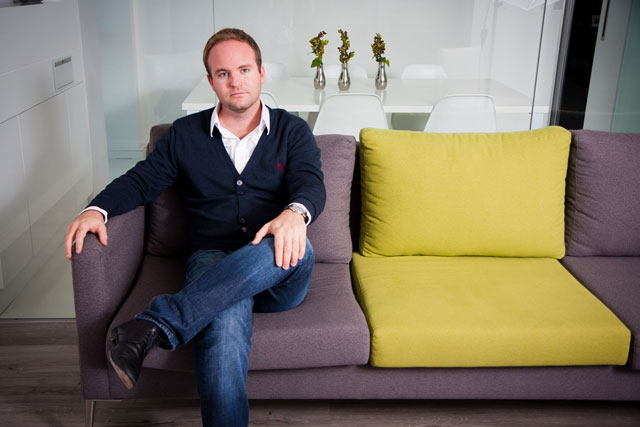
MMI Holdings, the JSE-listed parent of Momentum and Metropolitan, has committed hundreds of millions of rand to investing in and nurturing the next-wave of health and financial technology start-ups, both in South Africa and worldwide.
The group, through its externally focused innovation arm Exponential Ventures, has provided the vast bulk of the capital for a new fund to be managed by Stellenbosch-based venture capital company 4Di Capital.
The fund had its first close this week, with R256m of money in the pot for investment in promising local start-ups.
MMI has also announced that, together with Anthemis Group, it will pump €30m (about R520m) into financial wellness start-ups in Europe, the US and Asia. Anthemis, an advisory firm headquartered in the UK, has made 39 investments in early-stage companies in the financial service space to date.
Earlier this year, MMI launched Exponential Ventures to identify “potentially disruptive innovation opportunities”. It has already invested in South African fintech start-up TaxTim.
“We are looking for businesses that have the potential to fundamentally disrupt the financial wellness market,” said Exponential Ventures CEO Jaco Oosthuizen in a statement.
4Di Capital co-founder Justin Stanford — he started the business in 2002 with businessman Erik van Vlaanderen — said this week that corporate South Africa is starting to recognise the benefits of investing in disruptive start-ups through venture capital funds.
There’s the Uber example, or Airbnb — these are disruptions that can storm in and smash established industries overnight
He said that this practice has been commonplace in the US for years, but that big South African companies have been slow to come to the party.
4Di’s new fund, called the 4Di Exponential Tech Fund 1, will focus on early and growth-stage South African start-ups in “fintech”, “insurtech” and “healthtech”, and in particular on businesses that have aspirations to go global. The fund has two years to bring in additional investors before a final close.
“Globally, corporates are pricking their ears up over the disruption we’re seeing in the venture space,” Stanford said. “Whole industries are being upended in just a few years. There’s the Uber example, or Airbnb — these are disruptions that can storm in and smash established industries overnight.”
He described MMI’s investment in the 4Di fund and its deal with Anthemis as a “smart future-proofing strategy” that helps it “keep its nose close to the ground” and in touch with potentially industry-changing start-ups and ideas.
Stanford said the new fund has already identified potential investments, though he is not in a position to disclose details yet. 4Di, which has traditionally specialised in early-stage investment, will include growth-stage investments now, too — businesses with revenues of up to R20m, he said.
Stanford, who played an instrumental role in the creation of the Silicon Cape Initiative to foster a tech start-up community and ecosystem in the Western Cape, said 4Di has already made a number of interesting investments through its first fund, whose first anchor investor was billionaire Johann Rupert.
I went to see Johann Rupert, who was the best person I could think of to discuss these ideas with
They include LifeQ, a digital health start-up that develops advanced technology capable of measuring human body functions. This week, LifeQ inked a significant partnership deal with US technology giant Garmin, which makes wearable devices such as activity trackers and GPS sports watches.
“We invested in LifeQ four or five years ago when they were working in an attic in Stellenbosch. They have now globalised completely and have 120 staff worldwide,” Stanford said.
Another investment that is looking promising is Johannesburg-based Snapt, which provides high-end virtualised and cloud-based load balancing, Web acceleration and security software.
Snapt has 10 000 customers in 50 markets around the world, and is rapidly globalising its operations. Earlier this month, it announced it has secured an additional R15m in funding from businessman Andile Ngcaba’s Convergence Partners.

Farm kid to Internet entrepreneur
4Di Capital co-founder Justin Stanford came to the “big city” to chase his ambition to become an Internet entrepreneur.
He was “straight off the farm” when he arrived in Cape Town in the early 2000s, he said this week.
“I grew up on a farm in Elgin in the Western Cape. My dad was an apple farmer. I was the archetypal village farm kid coming to the big city with a backpack and nothing else.”
Although he grew up in a rural setting, the technology bug had bitten early, and Stanford desperately wanted to build an Internet start-up. He recalls there wasn’t much of a tech scene in Cape Town at the time. “I spent a few years very poor.”
Eventually, though, he achieved success with an online security business called ESET Southern Africa, which secured the regional distribution rights for Slovakian-developed antivirus software ESET.
“We had some early successes, and this led to other young people looking for advice and funding. I was only 23, or something, at the time.”
Businessman Erik van Vlaandereng, a friend of Stanford’s father’s, became his mentor and angel investor early on. They eventually founded 4Di Capital together.
“I did some trips to Silicon Valley at the time. It became clear there was something going on in the Cape. Cape Town shares very similar DNA to San Francisco. Both are coastal and both are liberal, with strong computer science and engineering universities. This attracts a similar mix of people — and innovation comes out of that.”
It became clear there was something going on in the Cape. Cape Town shares very similar DNA to San Francisco
But there was no real tech community in Cape Town like there was in Silicon Valley. Although there were pockets of start-ups and entrepreneurs doing interesting things, they didn’t know about each other, Stanford recalled.
He spent time in San Francisco “hanging with” his friend Vinny Lingham, the South African who founded Gyft and later sold it to First Data for a rumoured US$54m or more.
As they chatted, the pair realised there was an opportunity to try to “catalyse” the start-up ecosystem in Cape Town.
“I came back and in 2009 we launched the Silicon Cape Initiative. It absolutely exploded, and acted as a catalyst for the whole community and brought everyone together,” Stanford said.
It was around that time that he realised there was an opportunity to create an investment vehicle to provide capital to the promising start-ups that were “crawling out of the woodwork”.
“I went to see Johann Rupert, who was the best person I could think of to discuss these ideas with,” Stanford said.
“Johann is a hell of patriotic guy. He just loves the Cape and Stellenbosch and young people and he really enjoyed the idea. We started some early experiments together that would become 4Di Capital in 2011. He became our first anchor investor [through the Reinet Fund].”
Since then, 4Di Capital’s first fund has raised additional capital from from E Oppenheimer & Sons, an investment vehicle belonging to the Oppenheimer family.
- This article was originally published in the Sunday Times




